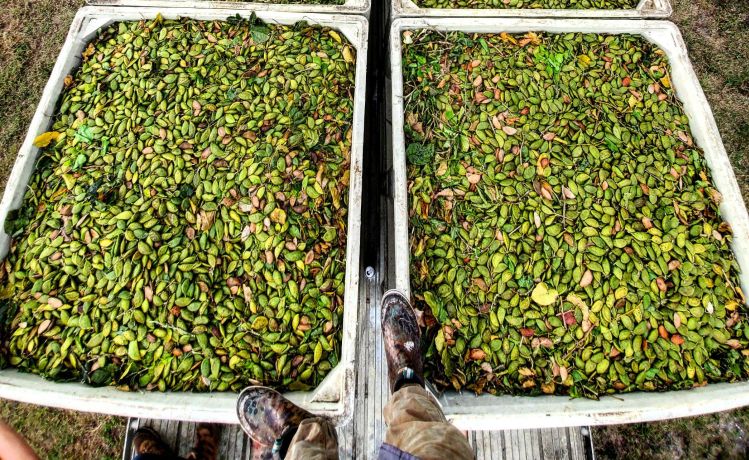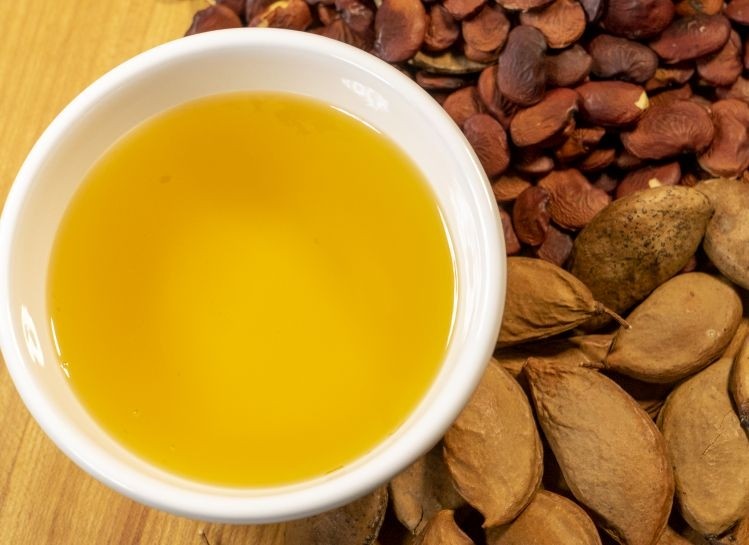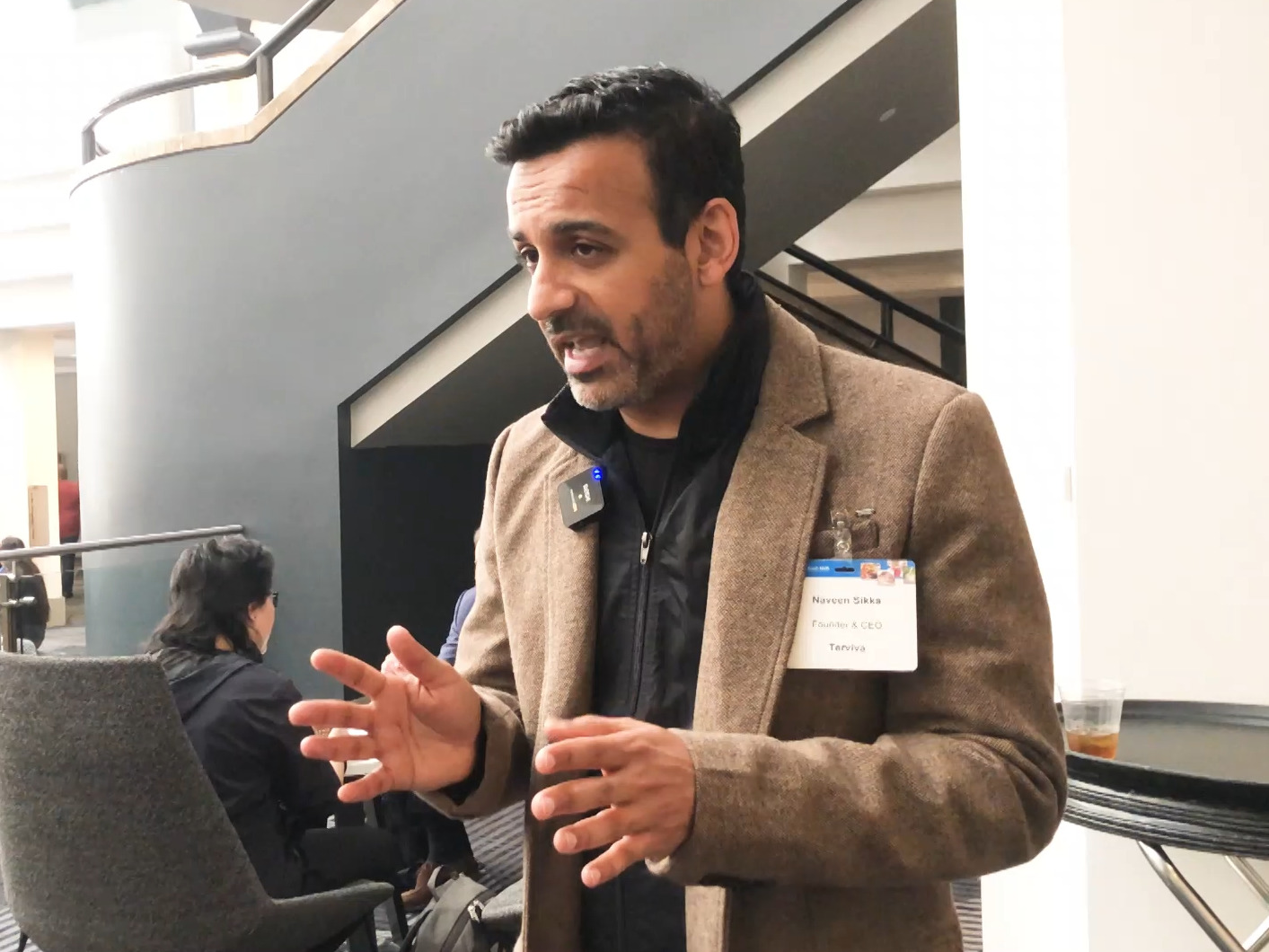The ultimate ‘climate-smart’ crop, nitrogen-fixing Pongamia trees produce significantly more biomass per acre than soybeans with a fraction of the inputs. But scaling and commercializing products from a completely new crop takes time and patient capital, says Terviva cofounder and CEO Naveen Sikka.
Speaking to AgFunderNews at the Future Food-Tech summit in San Francisco last week, Sikka said Terviva remained committed to its human food operation (Pongamia oil and protein) but had decided to prioritize animal feed and biofuels in the short term as it develops lower-cost approaches to scaling up the human food operation.
“In the last 12 months, it’s been really hard to form capital to bring new food ingredients to market,” noted Sikka, who founded Terviva in 2010 with Maggie Kavalaris, Anne Slaughter, and Joe Andrew and has raised $100 million to date.
“So we’ve got to rethink the scalability of that whole part of our business. We’ve made a few decisions. The first is that we’ve walked back some of our assumptions in scaling up the oils and the proteins as food ingredients. We’re still bringing it to market on the timeline we expected but at a lower scale point.”
Manufacturing partnerships
In the short term, he said, “We’re going to divert our Pongamia bean volume more towards biofuel and feed, where we can generate a positive gross margin, if not a very high gross margin compared to food ingredients.
“And then we’re going to form a manufacturing partnership for these food ingredients. We have a partner in mind we’ll hopefully be announcing it in the next three or four months. Somebody who can take the risk of manufacturing this off of us and give confidence to the market that they will be able to scale these ingredients at volume and adequate quality.”
Strategic pivots
As for the funding environment, he said, “I think what’s interesting for agtech and foodtech is that the development cycles of our technologies are longer than the economic cycles in which we operate.
“For example, things were getting nice and hot on novel food ingredients in 2019. Then COVID happened and slowed things down, but things picked back up because everybody was interested in novel food ingredients. But then boom! Two years later this market downturn hits.
“Fortunately for Terviva we have other products that we can pivot to. We can do biofuel feedstock and we can do feed ingredients. I think the real challenge is you’ve got to be able to last through cycles. You’ve got to have partners who believe in you, who will pull you through those difficult cycles.
“And if you can’t make it through the cycle the way that you thought, you have to bring down the investment you spend in the business. So in our case, we didn’t have to fold Terviva, we just had to take our food ingredients business, look at it very carefully and say, Hmm, we might have to deprioritize investment here and move investment to other products [feed and fuel].”
‘It’s a great time to partner with strategics’
That said, “pivoting, even for a small company, can be painful,” he acknowledged. “And I would say in this market moment in agtech where everybody’s trying to raise capital, corporates, strategics have never been more important.
“Appreciably, the financial capital has paused or is taking a slower look at what’s happening, whereas most strategics are operating on some kind of mandate to decarbonize, to improve their sustainability footprint, and they are taking a longer and patient view.
“So I think it’s a great time to partner with strategics, although there are some caveats. I think you have to be careful about not giving away too much when you do those kinds of partnerships as most strategics want a lot of upside for their capital in terms of product availability or technology licensing.”
But he added: “If you’re careful, if you talk to multiple strategics and try to find the best one that fits your business, you can find a really great partner who will contribute capital and it will give the rest of capital markets confidence in your business.”

‘Vertical soy’
Nitrogen-fixing Pongamia trees—sometimes referred to as ‘vertical soy’ as they produce seeds with high levels of protein and oil—have not historically been used as a food crop owing to inconsistent yields and bitter components in the beans.
However, Terviva has developed proprietary techniques that remove anti-nutritional components during processing, opening up new market opportunities for the “incredibly robust” drought-resilient crop, which requires minimal inputs, said Sikka.
While Terviva has historically sourced Pongamia beans from India as it builds up a domestic network of growers, it has built an IP platform around high-yielding Pongamia trees coupled with propagation techniques that deliver scalable, consistent crops in a variety of locations including Florida (where it partners with fruit growers devastated by citrus greening disease) and Hawaii (on land previously dedicated to sugarcane).
“We have built an extensive crop breeding platform around Pongamia where we’re now able to get reproducible and consistent high yields of these beans on tier two agricultural land.”

‘Highly usable feed and food ingredients’
Terviva has also developed processing techniques to remove bitter components from the beans and “make highly usable feed and food ingredients,” said Sikka. “So our edible oil, which we call Ponova oil, has already entered the market. We’re doing small scale sales, almost like test and learn types of sales with leading brands where we can talk about the story of Terviva and Pongamia with the oil.”
One such customer is plant-based brand ALOHA, which is “telling great stories about regenerative agriculture in Hawaii,” said Sikka.
“We’ll continue to do these types of small volume applications over the next couple of years. And then in 2026, we expect to bring the first larger scale Pongamia sales into the US market. We’re also going after very low carbon intensity biofuel feedstock and selling protein feed ingredients in India.”
New strategic partner Mitsubishi is “truly helping us across every aspect of our business,” he said. “They’re helping us sell biofuel feedstock, feed ingredients and food ingredients. They’re also helping us scale tree planting.”





